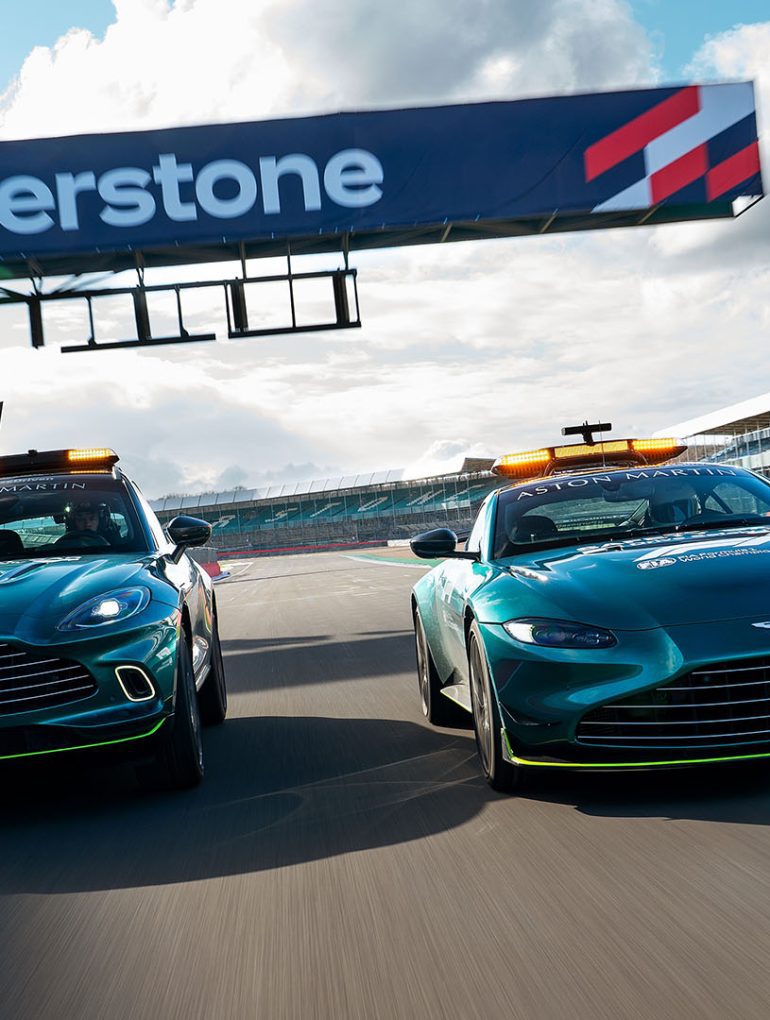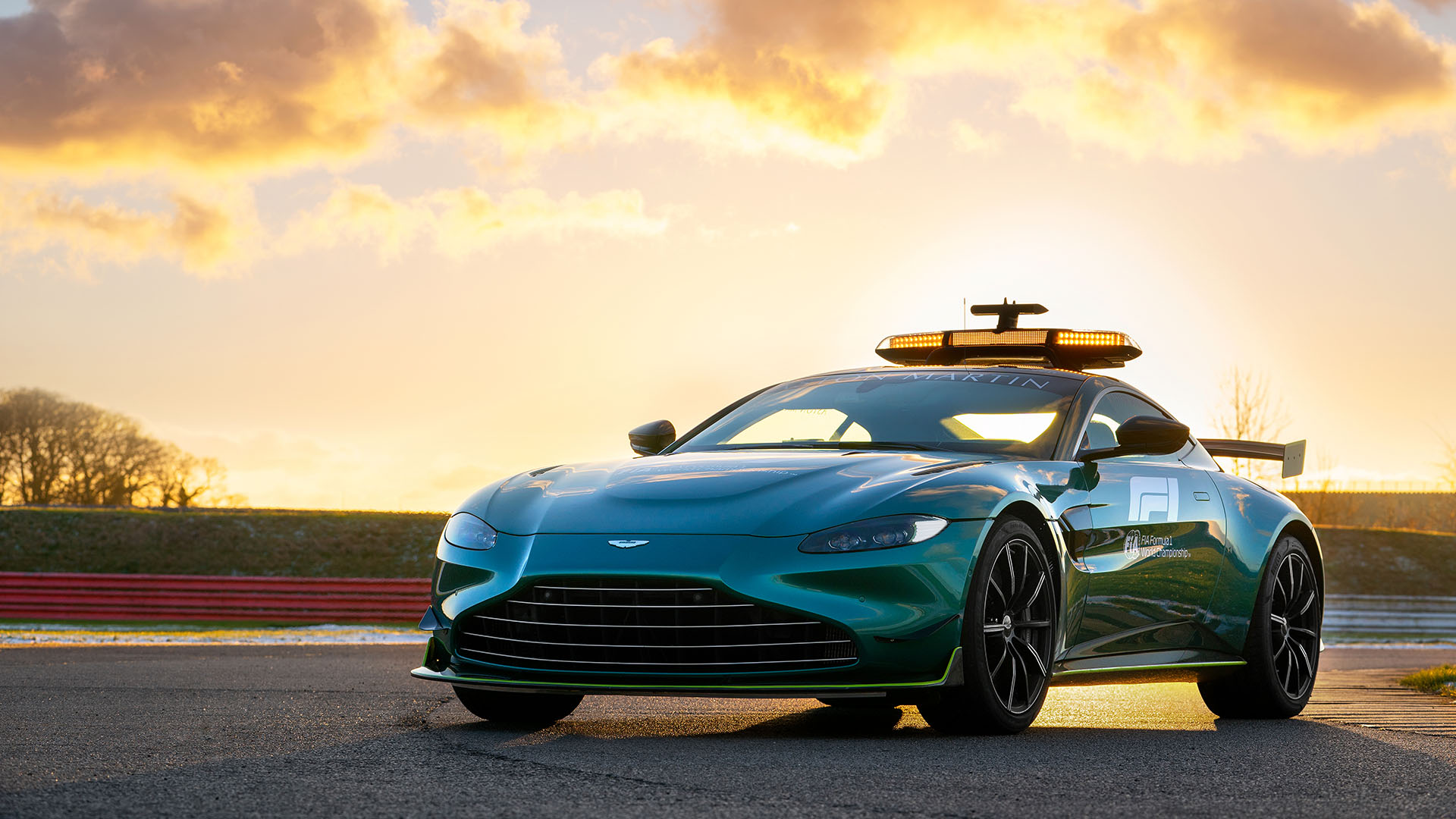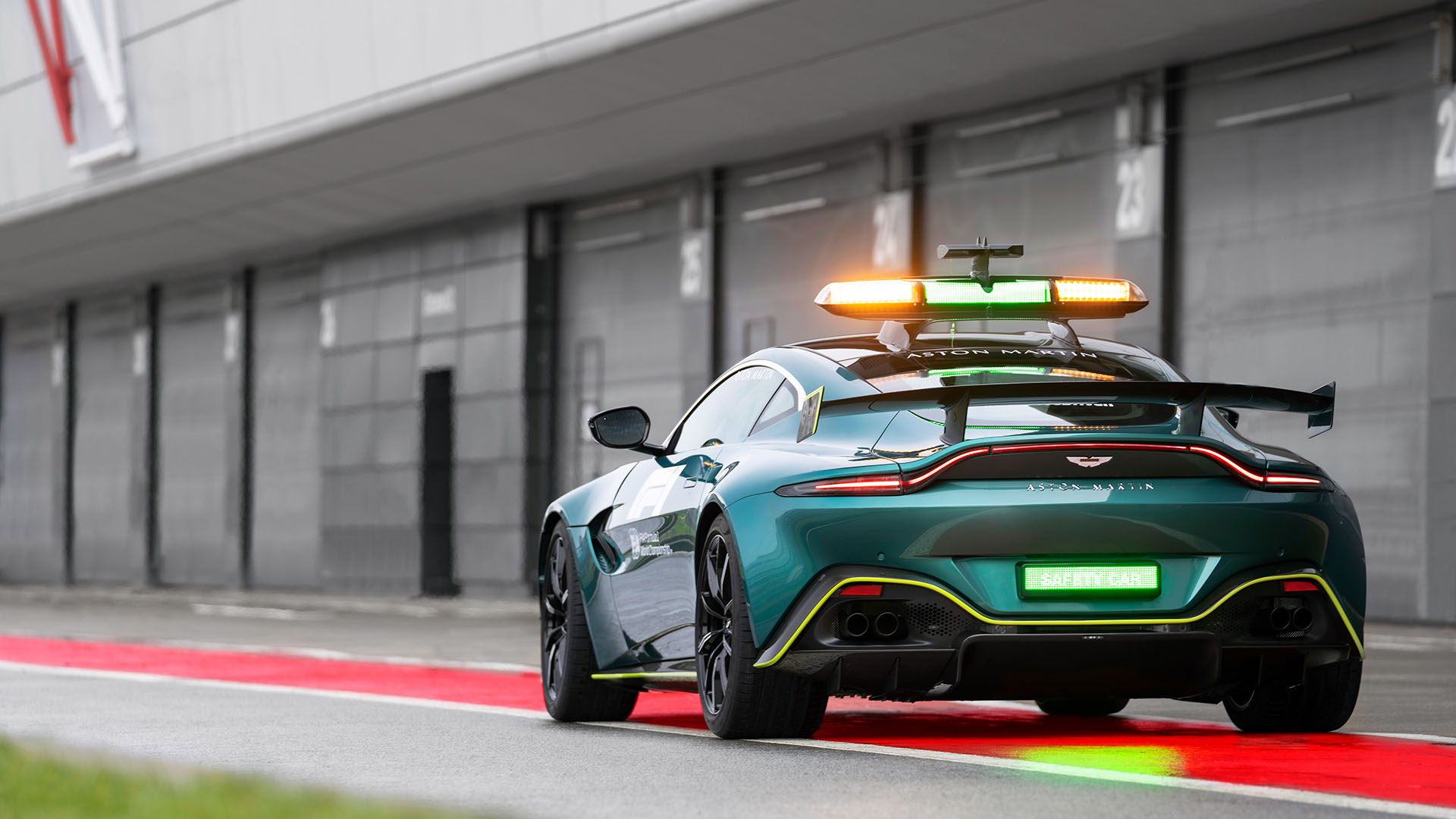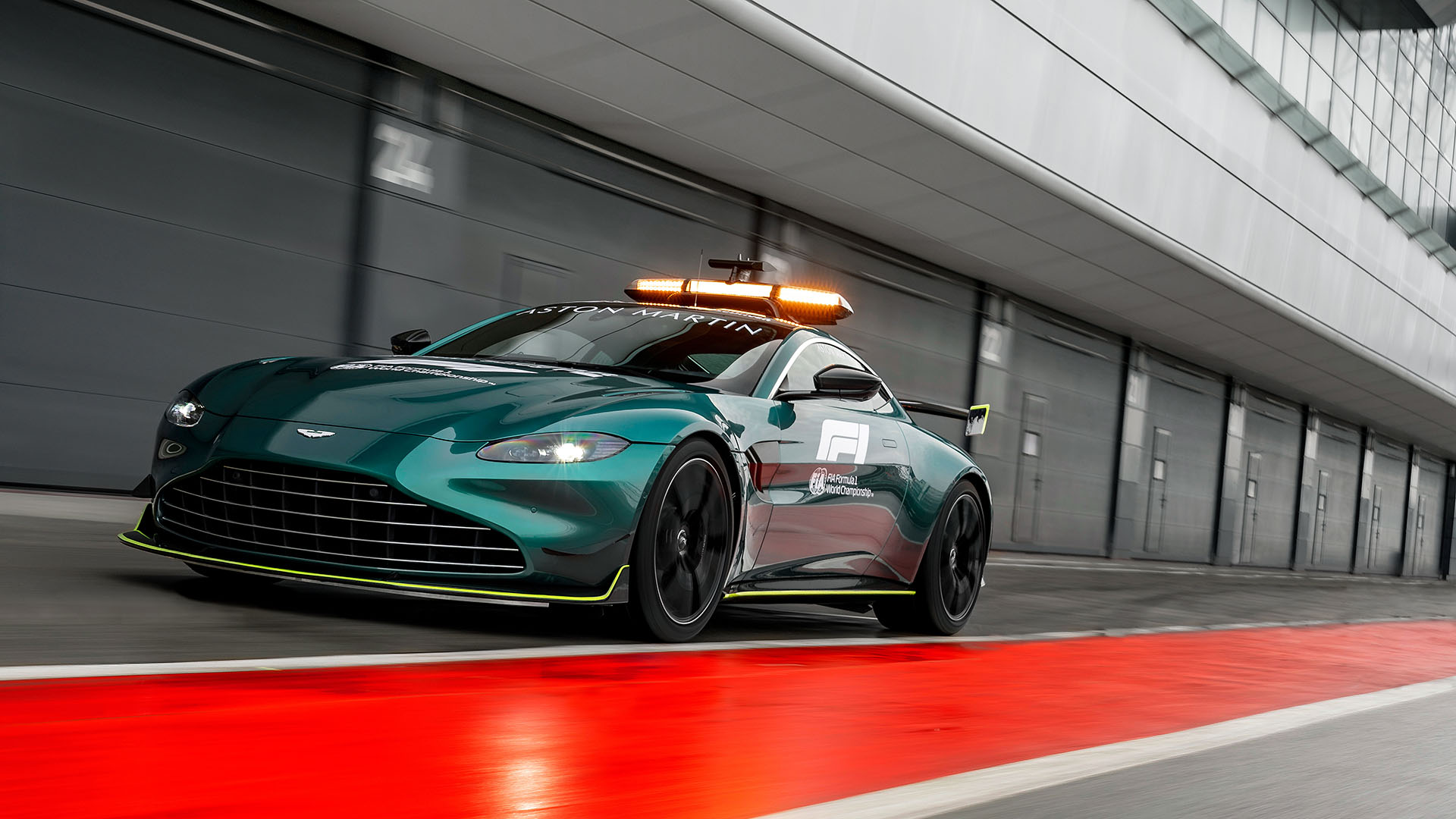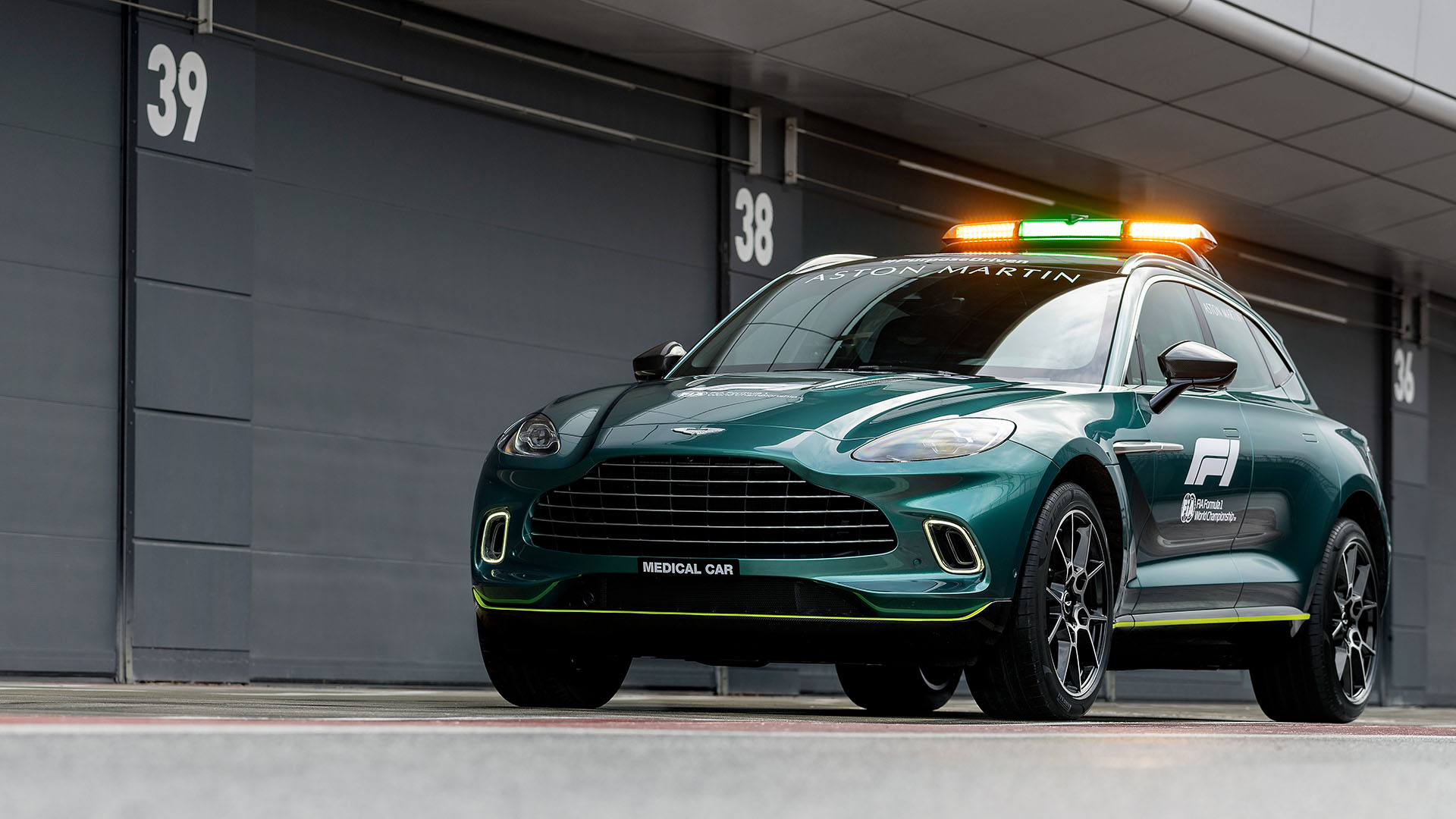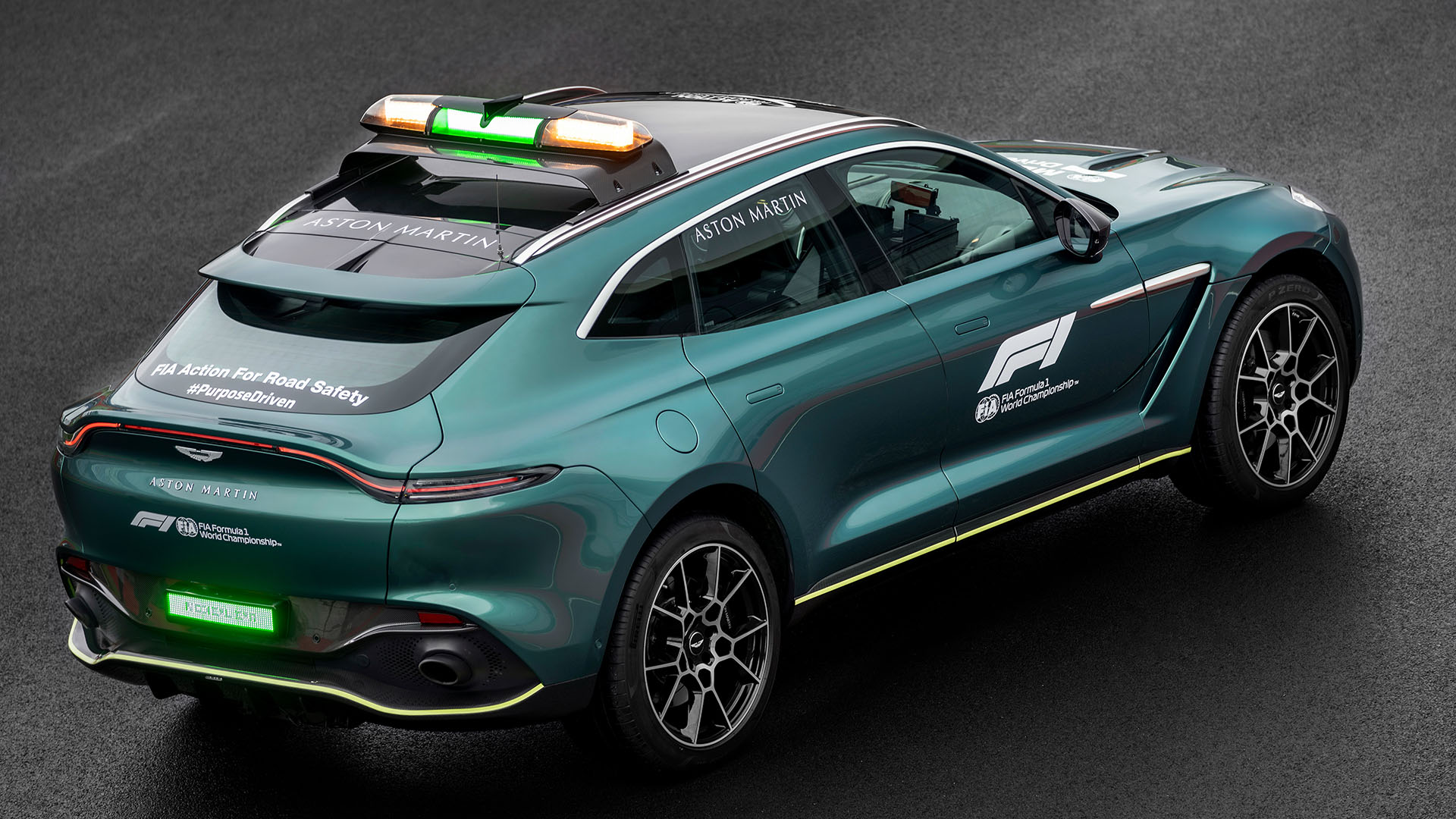At the Gulf Air Bahrain Grand Prix we will not only see the return of Aston Martin to Formula One racing with two cars, but for the first time in F1 history we will be seeing an Aston Martin as the Official Safety car and a second one as the Medical car, the first based on the Vantage while the DBX will be seen in the event of an emergency.
The Aston Martin Vantage Safety car will not be a factory standard model however, it is a custom built version with a modified chassis and improved aerodynamics, developed by the in-house team at Aston Martin’s Headquarters in Gaydon, the UK, this one-off will be driven by Bernd Mayländer (DE) who has been at the helm of the F1 safety car for over twenty years, the Aston Martin will remain on standby in the pit lane throughout the race.
In case of a problem on the track, and the safety car takes the lead, the slower speeds can cause the race cars tires to decrease in temperature, so the pace car has to able to reach high speeds quickly, this special Aston Martin Vantage has it’s power increased to 535PS from the 4.0-Liter twin-turbo V8 … she’s able to reach 60mph in only 3.5 seconds.
The Vaned grille coupled with a new front splitter creates 155.6kg of downforce at 200km/h; more than 60kg than the production Vantage produces at the same speed. Modifications to the suspension, steering and dampers have also been undertaken, with further detailed underbody bracing modifications to increase front structural stiffness. All this, together with a comprehensive aero kit and a switch to lower profile Pirelli tyres, the Aston Martin Vantage Official F1 Safety Car has all the credentials to handle a F1 circuit.
The return of two Aston Martin F1 race cars from the Cognizant Formula One Team comes with a new livery, 2021 Aston Martin Racing Green, specifically created to celebrate their return to F1 after 60 years, the front splitter is emphasized in Lime Essence, a shade we’ve already seen on the Vantage that competed in the FIA World Endurance Championship (WEC).
The otherwise luxurious leather seats of the Vantage have been replaced by FIA-approved racing seats, complete with six-point safety harness, a pair of displays show a live feed of the race and individual car position of the competitors, the necessary switches for the lights and siren for instance have been placed on the central console. The Aston Martin Vantage Safety car even comes with outside cameras so they can broadcast a live feed from this car on the track.
The official Medical Car for the 2021 season is based on the Aston Martin DBX, the larger SUV comes in the same livery combining Racing Green and Lime green, powered by the same 4.0-Liter twin-turbo V8 engine, in the DBX she pumps out 550PS and 700Nm which allows the DBX Medical car to reach 62mph in 4.5 seconds with a top speed of 181mph.
Whilst the interior trim is fully representative of a customer vehicle, the central rear seat has been removed, and the remaining four have been replaced with sport bucket seats, each equipped with a 6-point safety harness. These provide seating for the driver, Alan van der Merwe and Dr Ian Roberts – the FIA Formula 1® Medical Response Coordinator, as well as a Local Doctor, leaving one spare.
The development of both these Official Safety Car of Formula 1® and Official Medical Car of Formula 1® was carried out by the engineering team at Aston Martin. Both vehicles have endured significant testing, which included high-speed durability assessments and aggressive circuit driving at the Aston Martin facility at Silverstone, totting up almost 15,000km collectively. The vehicles have also been tested in a dyno climate chamber to ensure they will perform in all race conditions.
Aston Martin fans will be able to see the Aston Martin Vantage Official Safety Car of Formula 1® in action for the first time during the three-day pre-season test at Bahrain on 12-14 March, and then again during the opening round of the FIA Formula One® World Championship, at the same venue two weeks later.


